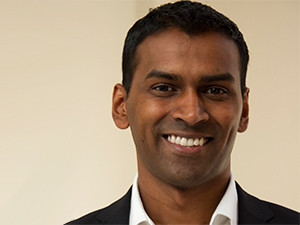
Traditional business models are radically being disrupted in this digital-centred world, with banks now behaving more like telcos, and telcos behaving like retailers.
So said Lee Naik, MD of technology and digital strategy for Accenture in SA, speaking during the Avanade Driving Digital Transformation event in Johannesburg last night.
"We are now competing against businesses that are not 'physical'; for example, Amazon, Netflix and Facebook. These are businesses that have fully embraced digital technologies and they are challenging the traditional business models.
"As an example, last year FNB sold more iPads than all the telcos in South Africa. The bank also recently unveiled a virtual mobile network."
Naik also referred to Standard Bank, which is testing an Apple Watch app with pilot users and will release it to the public by the end of September. This follows the recent launch of the bank's biometric-enabled banking app, which gives users access to smartphone banking using Apple's Touch ID technology.
"The question now is how do we survive in this volatile business environment that we are operating in? We need to be more agile and responsive to the new business demands."
He added companies are now using digital ecosystems to offer new services, reshape experiences and enter new markets.
According to Naik, organisations are now tapping into what Accenture refers to as the "we economy" that is re-shaping markets and changing the way we work and live.
These businesses see great potential to make a difference - and a profit - by operating as ecosystems, not just as individual corporate entities, and driving the emergence of the "we economy", he explained.
Rather than simply focusing internally, on improving their own operations, successful companies are looking externally to create and become part of digital ecosystems, he pointed out.
Speeding ahead
Also speaking at the event, Graeme Hackland, CIO of Williams Martini Racing Team, Formula 1, described how digital technologies are increasingly being deployed in the racing cars of the popular sport.
"In the entire lifecycle of the Williams Martini racing car, from aerodynamics to tyres, there is technology."
In today's digital, always connected, instant-access landscape, companies are challenged to speed up business cycles and increase productivity to drive competitive advantage, he added.
Pointing to the impact of the Internet of things, Hackland said the racing car now has about 200 sensors connected to it, which are all important in gathering data to improve the performance of the racing car.
"When I came to Formula 1 in 1997, a racing car would only produce data big enough for a floppy disk but now these cars can generate about 120G of data in a single race."
He noted a lot of hi-tech companies are partnering with Formula 1 teams as they realise how digital technologies are transformative.
Share